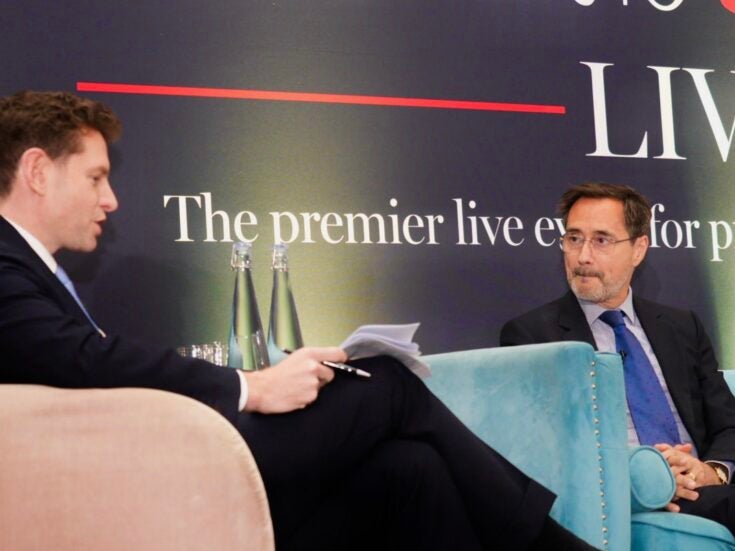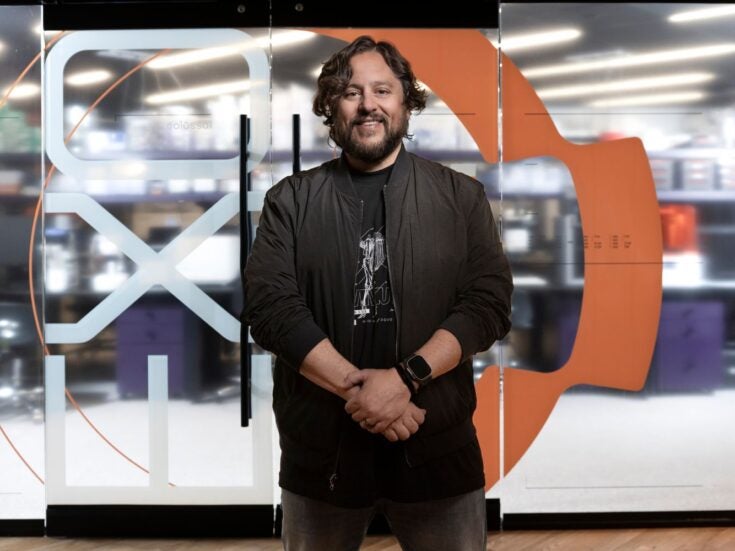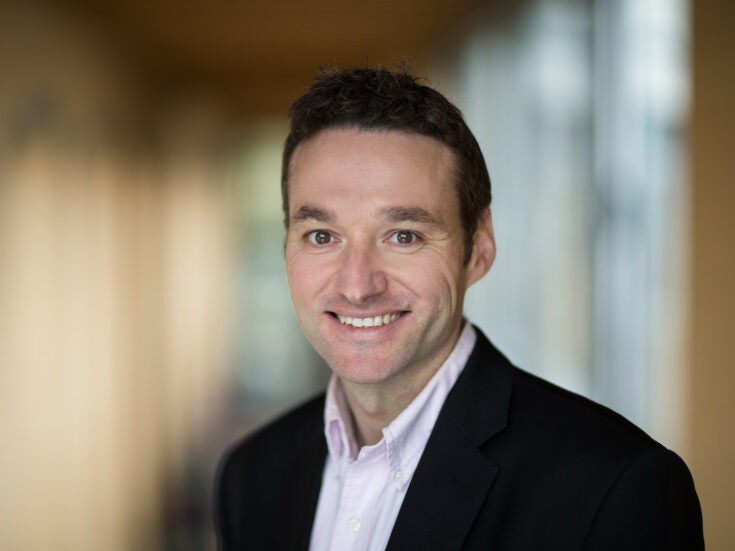
Sophie McBain travels to Basel to meet Elena Baturina, Russia’s richest woman and a committed believer in the transformative powers of good design and febrile imaginations
EVEN BY THE standards of Design Basel, one exhibition this June showcased an especially curious mix of objects. There’s the Pituita, a fake finger devised for hygienic nose-picking, a video installation of a woman singing the Dutch national anthem in Arabic, a Velcro superhero suit to help children with partial paralysis learn to dress, earphones for the partially deaf and disposable paper ties.
You’d struggle to guess it, but these unusual exhibits are linked by a theme. All were entrants to a competition for design students organised by Be Open, the ‘creative think tank’ founded by Russia’s richest woman, Elena Baturina. Surprisingly, Baturina declined to join the judging panel, but she did come to Basel to view the installation. I met her later in the VIP collectors’ lounge, where we were enveloped by the high-back white Vitra sofas and crowded in by her sizeable, nervy entourage.
She seems much more approachable in person than she does in photographs, with honey-toned highlights and a sharply tailored knee-length coat — but it was hard not to be distracted by her diamond-encrusted watch, which every few seconds sent blinding glances into my eye.
‘Notwithstanding my life, I feel like I’m still what I was, a working-class girl from the suburbs of Moscow,’ she says, speaking through her translator. Her first job was as a factory worker, but after studying at the Moscow Institute of Management and joining a local municipal commission during perestroika, in 1991 she set up her own company, Inteco. It was originally a plastic goods company that later expanded into construction — and this year Forbes estimated Baturina’s total wealth at $1.1 billion. This was after a bad few years for business, too — at the height of her fortune she was worth almost four times as much.

Pictured left: Manon von Trier’s Chewing Gum Wallpaper won a Be Open award in Basel
While Baturina won contracts for lucrative property developments, her husband, Yury Luzhkov, was Moscow’s mayor from 1992 to 2010. This is not coincidental, critics say, although Luzhkov has maintained that his job has been a constraint on his wife’s ambitions. Then, in 2010, Luzhkov was ousted from his position amid corruption allegations and rumours of an elite power struggle, and Baturina left Russia with her two daughters, apparently fearing for their safety. In 2011 she sold Inteco for an undisclosed price.
Be Open was founded last year, too, and she says it’s a ‘logical continuation’ of what she’s been doing over the past two decades. Her construction career has brought her into contact with world-famous designers and architects, she explains, and now she’s interested in design as a force for good.
The Be Open website talks about harnessing ‘the brain power of global creative minds’ and asking them to ‘build solutions for the future’. It’s not the most defined of objectives, and the theme for the Basel design competition is no narrower: participants were asked to ‘create the future now’. Any hopes of being able to distil her ideas during the interview quickly faded; Baturina’s ambitions are so far-reaching they are quite hard to contain at all. I ask her if she could explain a little further her beliefs about the social importance of good design, and she describes how beauty ‘gives the world meaning’ and how ‘profit-hunting’ and ‘consumerism’ has caused ‘ugly forms’ and ‘ugly relations with people’.

Pictured left: Elena Baturina
Perhaps I shouldn’t have been surprised. Just a few galleries away collectors could buy, for several thousand dollars, Sebastian Errazuriz’s deck chairs decorated with prints of Occupy placards, such as ‘we are the 99%’ and ‘kill corporate greed’. These objets would help to ‘occupy the homes of the 1 per cent with the messages of the 99 per cent’, the stony-faced gallerist explained. Part of the proceeds would go to the Occupy movement, though Errazuriz wouldn’t reveal if he was giving 99 per cent or 1 per cent away.
As well as promoting innovative design and idea-sharing, Baturina says the company has a ‘humanitarian impulse’. The humanitarian problems she’s interested in are of ‘international importance’ and are ‘supranational’ in nature. When I push for an example, she cites her work to promote religious tolerance, because ‘it’s one of the hardest topics in the world’. Her fund, Noosphere, which focuses on educating children on world religions, has been running programmes in Russia for eight years and launched in the UK this year.
FOR ALL THE corruption allegations that have dogged the couple in the past two years, when Luzhkov was first appointed mayor he enjoyed great popularity, having played a significant role in Russia’s early democracy movement. Now Vladimir Putin has returned to the presidency for a third term and critics argue that the judo-playing, tiger-hunting, political macho man has undermined Russia’s fledgling democracy through widespread government corruption, human rights abuse and media censorship. I wonder whether she ever feels like her husband’s early, idealistic project has failed, and she avoids the question.

Pictured left: Jorge Bakker’s Untitled (Model for a Floating Forest), which also won a Be Open prize
‘I was never so involved in politics; I try to keep distant from big political games. I’m pragmatic — I like to do some real good rather than some abstract talking about what’s good. I think I can do more good changing something practical in Russia and in the whole world rather than criticising political figures and making political accusations.’ She was not always so circumspect. Shortly after her husband’s sacking, Baturina claimed that Luzhkov had been used as a political pawn.
Now Luzhkov and Baturina divide their time between London, where their daughters are studying, Spain, where they play golf, and Switzerland. Baturina’s business interests have shifted from construction to real estate investment, which is less exciting, she confesses, while through Be Open she’s trying to make her philanthropic work more strategic.
Observing Russia from her sedate exile, who does she think have been the real winners in the post-Communism power grab, I ask her. And finally, fleetingly I catch a glimpse, not of Baturina the philanthropist or political first lady, but of the steely, irrepressible oligarch.
‘The game is not over yet. People who think of themselves as winners, it’s obvious from the outside that they’re losing ground. It takes time for them to realise where they’re going, but from the outside, it’s obvious.’
Read more on Russia from Spear’s
Don’t miss out on the best of Spear’s articles – sign up to the Spear’s weekly newsletter
[related_companies]





